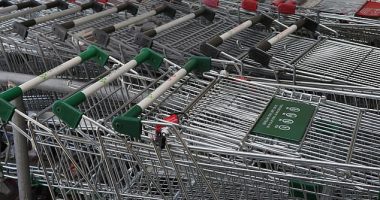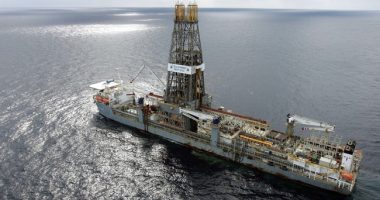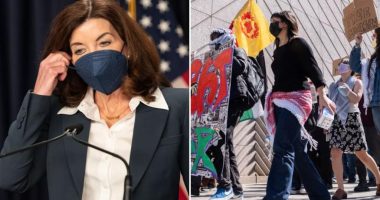
“I saw it with my own eyes, but I still can’t describe what I saw. I am haunted by it,” he said Sunday at a hospital, where he lay on a stretcher with a broken leg and dark wounds on his face and arms.
Pallay is a labourer, like most of the people onboard the two passenger trains that crashed Friday in the eastern state of Odisha, killing 275 people and injuring hundreds.
He was travelling to Chennai city in southern India to take up a job in a paper mill factory when the Coromandel Express crashed with a goods freight train, knocking it off track, and was then hit by a second train coming from the opposite direction on a parallel track.
“I never imagined something like this could happen, but I guess it was our fate,” he said.
Authorities recommended India’s Central Bureau of Investigations, which probes major criminal cases, open an investigation into the crash.

“We can’t bring back those we have lost, but the government is with the families in their grief. Whosoever is found guilty will be punished severely,” Prime Minister Narendra Modi said on Saturday while visiting the site of the accident.
The crash occurred as Modi’s government is focusing on the modernisation of India’s colonial-era railroad network.
Several survivors of the crash said they were still struggling to comprehend the disaster.
“Everything happened so quickly,” said Subhashish Patra, a student who was traveling with his family from Balasore to the state capital, Bhubaneswar, on the Coromandel Express.
He was planning to take his mother to a hospital in Bhubaneswar to seek treatment for a hand injury, and then to travel to Puri, home to one of Odisha’s most important temples.

The first thing Patra could make sense of after the crash was the sound of children crying. People were screaming for help in the dark, and around him lay corpses.
“There were dead bodies all around me,” he said.
Read Related Also: AI voice cloning scams 'will come to Australia' – so how do you guard against it?
Patra said the rail carriage he was in landed with the door facing up. He climbed onto a pile of wreckage inside the train and managed to pull himself out.
At the hospital on Sunday, Patra’s head was bandaged in gauze as he waited for an MRI scan. His head was throbbing with pain, he said, but he was grateful that he and his entire family had survived.
Others weren’t so lucky. On Monday, many people were still lined up outside a hospital in the state capitol waiting to identify and collect the bodies of relatives.

Alaudin, who goes by one name, travelled almost 200 kilometres on Saturday from West Bengal state to the crash site in Balasore to look for his brother, who was on one of the trains.
He learned about the crash from television. When he tried to call his brother’s mobile phone to check on him, no one answered.
Worried, he and his sister-in-law rushed to the site of the crash afterwards and spent all of Saturday looking for him in various hospitals, hoping he would be alive. But his brother’s whereabouts remained unknown as the death toll continued to rise.
Distraught, they finally made their way to the mortuary, where Alaudin’s brother body was wrapped in a black plastic bag and placed on top of blocks of melting ice.

Top 10 most populated nations as India poised to knock out No.1
“I lost my brother, she lost her husband,” Alaudin said, pointing to his sister-in-law.
“And his two boys have lost a father.”
His brother was 36 years old, Alaudin said.








